Never pay taxes on your crypto gains? Yes you can! Really? The short answer for those of us in the United States is Yes! – if you structure it correctly… Before I go further, as always the information here is for educational purposes only. I share what I know at this moment in time, but things change, and situations vary from person to person. I’m not a CPA or Tax Attorney, and I don’t know all the details of your situation. You need to be responsible for yourself and DYOR (Do Your Own Research). With disclaimers out of the way, here is the longer answer. If your gains occur within a ROTH IRA (named for the late Senator William Roth) and you follow all the rules, you do not owe taxes on any gains – even if your returns are 100x or more. So how do you get your bitcoin into a Roth IRA to take advantage of this?
Ideally, there would be a Bitcoin ETF that would hold Bitcoin for you, like SLV or SIVR that holds silver on behalf of investors. Then you could use your normal Roth IRA brokerage account and buy that ETF with your funds in your ROTH account and you’d be done. While other countries have approved Bitcoin ETFs, as of today the only Bitcoin ETFs approved in the United States are futures ETFs. You could buy stock in Bitcoin companies like Coinbase (COIN) or in the Greyscale Trust (GBTC), but futures and stocks and Greyscale all have additional risks on top of the basic bitcoin bet. Eventually there will be more options, but it does not appear to be likely to be coming soon. If you want to do a Bitcoin IRA now it’s not straightforward. Today, you will need to manage complex paperwork and / or work with a specialty company that can assist with that so you can set up a ‘self-directed’ IRA. I do not have a best answer for you in terms of which companies or products to use, but I think now is the time to do your research and make your move, while bitcoin is still under $60,000 $52,000.
The first thing for you to think about is how much you are willing to trust someone else to hold your crypto for you. This is called a custodial account (your crypto is held by a custodian). For the highly regulated banking and mutual fund sectors, almost all accounts are custodial – you don’t generally get stock certificates sent to your house for you to admire and keep. Because it has been around a long while and there are well understood regulations, you have some recourse if something goes wrong with your brokerage account for stocks and bonds. Crypto is different. The companies in this space are much younger, there is much less regulation and the regulation that exists is not always clear. For crypto you need to research and understand the custodial risks. Remember, if you don’t hold the crypto private keys, they aren’t your coins. You have an account at a company where someone else holds coins for you. If you choose to hold your own crypto there are different risks. In particular, since you hold the keys, if you forget or lose the keys, or they are hacked your coins may get lost.
The second thing to think about is if you are looking to trade or HODL. HODL is an abbreviation for Hold on for Dear Life – a long term holder who hangs on despite the wild volatility of crypto. This is important because what’s allowed and the costs associated can vary widely from different providers. Being clear on what you want going in will help you select the best option for you. If you are looking for some diversification and want to hold (HODL) some crypto for the long term there are companies that specialize in that. If your goal is to trade in and out of various alt coins then you will need to find a provider who supports the coins you want to trade, and has fees that are acceptable to you.
I have done a lot of investigation and not found any companies that I am comfortable enough with to actually recommend. I can tell you for my needs (Just bitcoin, noncustodial so I can hold the keys and HODLing not trading) I found one company that I am trying out. I like their multi-signature wallet approach and have opened two accounts with them. The first for long term secure holding of Bitcoin and the second for long term secure holding of Bitcoin within a Roth IRA. Both accounts require two hardware wallet signatures to remove any funds. By storing those two in separate locations, I dramatically decrease the risk of loss due to theft / hacking. I won’t recommend what’s right for you, but based on what I’ve learned, I can educate you on some things that are possible, tell you what I’ve done and let you DYOR and see what you want to do.
The time to get assets into a Roth IRA is BEFORE they go up in value significantly – just ask Peter Thiel who turned $2,000 into $5,000,000,000 inside a Roth. If there is anything stopping you from doing this now, plan a call with me and let’s get you what you need to make the best decision for you – today.
Buy the F***in Dip?: When I started drafting this, bitcoin was just under $60,000. It since dropped to the mid $40,000s and now is back up to just over $51,000. I don’t make recommendations nor give financial advice, but here is what I’m thinking – Bitcoin is on a Black Friday / Cyber Monday sale right now. I believe that it will be going up significantly, and now is a great buying opportunity. At the same time, there are many, many crap coins that have had their prices reduced too. I think this may be the start of the ‘shakeout’ where many crap coins that have dropped in price may not come back. Do your research and make your move.
I hope this has been interesting for you and it helps move you forward with crypto. Remember, this is only for your education, I don’t offer financial, legal or tax advice. You need to evaluate your own situation and risk tolerance and DYOR (Do Your Own Research). Do not put any money into crypto that you are not willing to lose. I enjoy answering crypto questions, so feel free to email me or call me, I like to help. Personal instruction and assistance is my specialty – so if you or someone you know is looking for more than an email response to a question I also provide one on one and small group classes as well as personalized consulting.
Jesse

